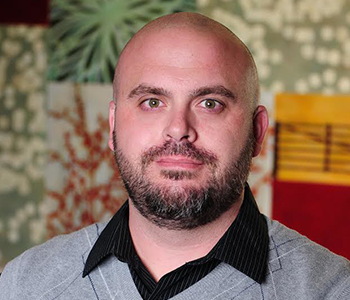I’ve spent a decade at Big 4 accounting firms PwC and Deloitte, startups, and my own firms. During my time at Big 4 firms, I encountered a multitude of industries, people, and problems working in the “corporate world”. One problem I noticed was that there was a definitive class system when it came to the type of clients serviced, and what attention those clients would receive, or in the case of cannabis, not receive.
I attempted to approach a few partners prior to state legalization in Washington state. At this time, I was told that bringing it up was inappropriate, and that it was good I didn’t bring it up in a group as I may have been reprimanded otherwise. As you can imagine, I didn’t bring it up again for some time.
Once Oregon State legalized cannabis for adults in 2015, it seemed like a good time to ask the question. I approached one of my tax partners and pointedly asked him, will we be working in legal cannabis? His answer was “there isn’t a chance of that happening. We won’t go there until it’s federally legal or at least two of the other big four firms and start working with them.” I was obviously surprised by this answer, expecting to hear something more entrepreneurial and thought leading to be coming from this partner, but it was then that I realized how scared the outside public was of the impending cannabis industry. We are standing at the edge of the prohibition of cannabis, so people are going to have questions, especially people unfamiliar.
The Question At Hand …
How do you explain your cannabis clients to your non-cannabis clients? Good question, but we should start with two assumptions that need to be made. One, you are working with State licensed companies. Two, your client’s starting point of view on cannabis isn’t already set in angry stone.
The cannabis industry already has its own set of perilous issues to be aware of, do not make it worse by working with unlicensed companies. The only people you should be working with as a CPA are folks who have gone through the vetting and permitting process in that state. That means doing a background check on your prospective client, looking into the company in question on the Secretary of State website, checking their licensing status with the State, etc. Checking these few things goes a long way for your personal assurance that you are working with reputable people.
Just know that if your client is dead set against cannabis legalization usage, etc., you are not going to change his/her mind by talking to them, period. Be aware that you may be walking into an ambush, and said client just wants to let you have it before disengaging and going to another CPA. On the other hand, if your clients are asking simply because they want to understand the industry, the business owners, etc. that is a different story and one which we approach below.
So, your client Steve walks in and says, “Accountant Joe, I hear you’re dealing with people in the marijuanas. Is that true?” Your answer should immediately be what? “Yes, it’s true, if you’re concerned please feel free to have a seat and let’s chat. I don’t think you’ll be concerned after we talk.” The worst thing you can do in professional services is ruin your reputation or be viewed as untrustworthy. Lying about this situation is not going to help you, plus if you feel the need to omit/lie about this, it doesn’t really sound like you’re prepared to work in this industry. If this conversation alone is giving you pause, turn around and run from the cannabis industry because this will not be fun for you. The industry changes constantly, clientele turns over at a fast rate, and there is a lot of time spent in the relationship building with clients before any work is completed or fees paid.
Okay you’ve broken the ice, now how are you going to explain this to Steve that has owned the dry-cleaning business for 30 years and didn’t even know cannabis is the actual name for “marijuana”? I found that the best way to start this conversation is by illustrating what is similar between a cannabis and non-cannabis company, then how the cannabis company goes above and beyond normal business requirements. People tend to think that there are many more differences than similarities and that’s just not true. And why isn’t that true? At the end of the day, a cannabis company really is just a… company.
Point #1 – These people aren’t criminals or cartels, they’re business professionals forging an entirely new industry without a playbook
Cannabis companies are among the most highly regulated and taxed companies For a quick explanation as to why, you can simply let the client know that unlike their business, cannabis companies are not allowed to deduct normal business expenses. The reason this is important to bring up is that when your non-cannabis clientele is thinking of a cannabis company, they’re likely thinking of black-market marijuana. There’s a big difference between black-market marijuana and a state legal cannabis company because unlike a black-market marijuana dealer, these cannabis companies undergo a serious amount of vetting to first get their license and then even more work to keep that license.
If somebody wanted to just deal marijuana, they certainly wouldn’t go about it by creating a state licensed cannabis company. Why not? Because they would just sell marijuana and not go through the process and the troubles of putting themselves on all the documentation (hundreds of pages), the background checks, the fingerprint checks to get this license if they were just going to do something illegal anyways.
These folks pay all the fees/permits that a regular business pays, and then they also have to pay cannabis specific permits, special insurances, additional required equipment (such as HD video cameras with offsite 1 Terabyte minimum storage), punitive income taxes (IRC 280E doesn’t allow them to claim business expenses!), and fickle Federal, State, and Local governments that can change the industry on a day’s notice via new regulation.
It is a great first step to point out right away that due to the high taxation and regulation that these folks under go, there just isn’t the shenanigans that people outside of the cannabis industry expect. As an outsider, they simply won’t know any of this until you point it out. Even though I generally do not like the alcohol vs. cannabis comparisons for philosophical reasons (mainly that cannabis is orders of magnitude less dangerous physically and culturally), but it may help to point out major alcohol companies and NASCAR all stem from illegal moonshining. This is all a matter of perception.
Point #2 – These are family-owned businesses
Most of these companies are family-owned businesses. Approximately 70% of my clients are family-owned businesses. This is not a Mexican drug cartel, as some people would like you to believe. In fact, most of these businesses are literal mom and pop shops where the spouses run the business together, trying to make things work without staff. These are startup companies that not only face the regular hazards of business, but then must deal with hyper regulation all while not having any access to banking nor business loans. Your non-cannabis clients should really relate to that.
When you step outside of the mom and pop shop cannabis companies, then you’re starting to get into more of the classically structured corporations which are entering the industry as well. This will happen more and more as the industry matures, and as more businessmen join, the need to “explain the industry” will start to go away.
Point #3 – These businesses do a LOT of good for the community
Part of the extreme regulation faced is surveillance, which means that every one of these cannabis companies has an extensive surveillance system including video cameras with recording quality that would make a bank jealous. In most cases these companies are storing Terabytes of information in case it is needed. Your bank wishes they had the security system that your cannabis companies nearby do. What does that mean for the community? Most current information indicates that crime goes down in the area as people know someone is watching. There is also a constant security presence.
Beyond security protocols, cannabis company owners also tend to focus on being charitable community members. Remember that a lot these folks came from a community-based economy before that was completely in the black market. They relied on community and trust and understanding to move their business forward as they were unable to rely on the “rule of law”. Now that’s changing and they’re moving into the business atmosphere of having a legal company, but that doesn’t change the community of the cannabis industry. These folks tend to be genuine, thoughtful, and understanding of human interaction that goes beyond the public. Think about it, if your entire business depended on verbal “handshake and a smile” agreements, you had no legal recourse for issues, and wanted everyone to think the best about you, how would you act in public? Exactly.
If you pay attention you will often see a cannabis dispensary giving money to charity, doing food drives, raising money for local women’s and children’s shelters, etc. Are they doing this for publicity? No, mostly the news stays away, and the good deeds are not publicized because they’re attached to a cannabis company. Beyond that, there are extreme advertising regulations in most states as well, so even if they wanted to publicize the matter they are not able to do so. Then recall that there are no deductions for any money they spend on charitable events, so every dollar spent on charity costs them $1.50 ($1 and lost $0.50 tax savings), and you’ll see how charitable it really is.
Summary
Cannabis companies are highly regulated, overtaxed, underrepresented, and should not be feared. For the most part these are family owned operations that do their best to benefit their community to a great deal, even sometimes at their own peril.
These business owners are highly vetted, highly surveilled, and all indications and studies so far have shown that they are good community actors and that crime statistics look better after cannabis companies enter the neighborhood.
Stick with those topics and just know that some people, no matter the evidence at hand, will have their own negative personal opinions that will not be swayed. Your non-cannabis clients may have some philosophical issues with legalization of cannabis, the good versus harm to individuals physically, etc. I’d urge you to stay away from these sorts of topics. These conversations are highly personal in nature, don’t get into individuals, keep it at the macro level. The individual line of discussion tends to move towards religion and politics quickly and those conversations generally don’t end in one person or the other changing their mind. I would just stick to the script.
Thanks for reading CPA Practice Advisor!
Subscribe Already registered? Log In
Need more information? Read the FAQs
Tags: Legislation





